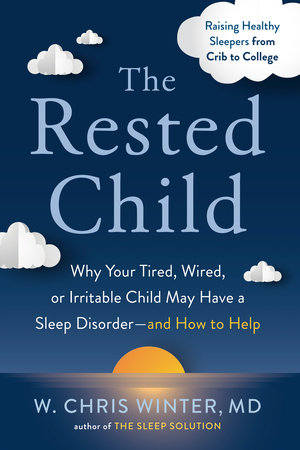Excerpted from “The Rested Child: Why Your Tired, Wired, or Irritable Child May Have a Sleep Disorder — and How to Help” by W. Christopher Winter, MD. Published by Penguin Random House.
In a bubble, the choice for starting schools later would be simple. The problem is the logistics. Altering school start times is difficult, highly political, and predicated on far more criteria than simply student health and performance. Let’s forget that, and focus on your child by answering some simple questions related to school start times:
School Start Time Checklist
- My child seems to show signs of excessive daytime sleepiness.
- My child is consistently getting an inadequate amount of sleep.
- My child’s school begins at 8:30 a.m. or earlier.
- My child has a bus ride that exceeds thirty minutes one way.
- My child sleeps an additional two hours more on the weekends.
- My child struggles with issues of mood and behavior.
If you checked off two or more of these questions, I think it is reasonable to consider your child’s school as a potential problem when it comes to adequate sleep. Asking these difficult questions matters, as studies have shown that not only can early school start times impact a child’s academic performance in their early-morning classes, but they can also negatively impact performance for their entire school day.
 From the first day your son rides away on the bus for kindergarten all the way to college, parents must be vigilant in monitoring their child’s sleep needs. As your child matures, school becomes much more labor intensive, and at the same time, the stakes become higher. Color outside the lines as a first grader . . . that can probably be explained away during a job interview later. Botch an AP calculus class as a high school senior . . . not so easy to sweep under the rug. As kids grow up, it becomes just as important to evaluate the school and schedule itself as it does how your child navigates it.
From the first day your son rides away on the bus for kindergarten all the way to college, parents must be vigilant in monitoring their child’s sleep needs. As your child matures, school becomes much more labor intensive, and at the same time, the stakes become higher. Color outside the lines as a first grader . . . that can probably be explained away during a job interview later. Botch an AP calculus class as a high school senior . . . not so easy to sweep under the rug. As kids grow up, it becomes just as important to evaluate the school and schedule itself as it does how your child navigates it.



 If we consider Kourtney, we see that while she needs seven hours of sleep, she is only getting an average of 4.5 hours every night. She does not have the gene allowing for high function despite inadequate sleep (horsepower), so she functions poorly and struggles to stay awake in school.
If we consider Kourtney, we see that while she needs seven hours of sleep, she is only getting an average of 4.5 hours every night. She does not have the gene allowing for high function despite inadequate sleep (horsepower), so she functions poorly and struggles to stay awake in school.  Dr. Christopher Winter
Dr. Christopher Winter